- Home
- Neil Gaiman
Anansi Boys Page 18
Anansi Boys Read online
Page 18
She took a sip of coffee from a plastic cup and made a face; while she had been paging through screen after screen, her coffee had gone cold.
She had gone through all the information that Grahame Coats had given her. There was certainly a prima facie case for thinking that something was wrong—if nothing else there was a check for two thousand pounds that Charles Nancy had apparently written to himself the previous week.
Except. Except something did not feel right.
She walked down the corridor and knocked on the superintendent’s door.
“Come!”
Camberwell had smoked a pipe at his desk for thirty years, until the building had instituted a no-smoking policy. Now he made do with a lump of Plasticine, which he balled and squashed and kneaded and prodded. As a man with a pipe in his mouth, he had been placid, good-natured, and, as far as those beneath him were concerned, the salt of the earth. As a man with a lump of Plasticine in his hand, he was uniformly irritable and short-tempered. On a good day he made it as far as tetchy.
“Yes?”
“The Grahame Coats Agency case.”
“Mm?”
“I’m not sure about it.”
“Not sure about it? What on earth is there not to be sure about?”
“Well, I think maybe I should take myself off the case.”
He did not look impressed. He stared at her. Down on the desk, unwatched, his fingers were kneading the blue Plasticine into the shape of a meerschaum. “Because?”
“I’ve met the suspect socially.”
“And? You’ve been on holiday with him? You’re godmother to his kids? What?”
“No. I met him once. I stayed overnight at his house.”
“So are you saying you and he did the nasty?” A deep sigh, in which world-weariness, irritation, and a craving for half an ounce of Condor ready-rubbed mingled in equal parts.
“No sir. Nothing like that. I just slept there.”
“And that’s your total involvement with him?”
“Yes sir.”
He crushed the Plasticine pipe back into a shapeless blob. “You realize you’re wasting my time?”
“Yes sir. Sorry sir.”
“Do whatever you have to do. Don’t bother me.”
MAEVE LIVINGSTONE RODE THE LIFT UP TO THE FIFTH floor alone, the slow jerky journey giving her plenty of time to rehearse in her head what she would say to Grahame Coats when she got there.
She was carrying a slim brown briefcase, which had belonged to Morris: a peculiarly masculine object. She wore a white blouse and a blue denim skirt and over it, a gray coat. She had very long legs and extremely pale skin and hair which remained, with only minimal chemical assistance, quite as blonde as it had been when Morris Livingstone had married her twenty years earlier.
Maeve had loved Morris very much. When he died, she did not delete him from her cell phone, not even after she had canceled his service and returned his phone. Her nephew had taken the photo of Morris that was on her phone, and she did not want to lose that. She wished she could phone Morris now, ask his advice.
She had told the speakerphone who she was, to be buzzed in downstairs, and when she walked into reception Grahame Coats was already waiting for her.
“How de do, how de do, good lady,” he said.
“We need to talk privately, Grahame,” said Maeve. “Now.”
Grahame Coats smirked; oddly enough, many of his private fantasies began with Maeve saying something fairly similar, before she went on to utter such statements as “I need you, Grahame, right now,” and “Oh Grahame, I’ve been such a bad bad bad bad girl who needs to be taught some discipline,” and, on rare occasions, “Grahame, you are too much for one woman, so let me introduce you to my identical naked twin sister, Maeve II.”
They went into his office.
Maeve, slightly disappointingly as far as Grahame Coats was concerned, said nothing about needing it right here, right now. She did not take off her coat. Instead she opened her briefcase and took out a sheaf of papers, which she placed upon the desk.
“Grahame, at my bank manager’s suggestion, I had your figures and statements for the last decade independently audited. From back when Morris was still alive. You can look at them if you like. The numbers don’t work. None of them. I thought I’d talk to you about it before I called in the police. In Morris’s memory, I felt I owed you that.”
“You do indeed,” agreed Grahame Coats, smooth as a snake in a butter churn. “Indeed you do.”
“Well?” Maeve Livingstone raised one perfect eyebrow. Her expression was not reassuring. Grahame Coats liked her better in his imagination.
“I’m afraid we’ve had a rogue employee at the Grahame Coats Agency for quite a while, Maeve. I actually called in the police myself, last week, when I realized that something was amiss. The long arm of the law is already investigating. Due to the illustrious nature of several of the clients of the Grahame Coats Agency—yourself among them—the police are keeping this as quiet as possible, and who can blame them?” She did not seem as mollified as he had hoped. He tried another tack. “They have high hopes of recovering much, if not all, of the money.”
Maeve nodded. Grahame Coats relaxed, but only a little.
“Can I ask which employee?”
“Charles Nancy. I have to say I trusted him implicitly. It came as quite a shock.”
“Oh. He’s sweet.”
“Appearances,” pointed out Grahame Coats, “can be deceptive.”
She smiled then, and a very sweet smile it was. “It won’t wash, Grahame. This has been going on for yonks. Since long before Charles Nancy started here. Probably since before my time. Morris absolutely trusted you, and you stole from him. And now you’re trying to tell me that you’re hoping to frame one of your employees—or blame one of your confederates—well, it won’t wash.”
“No,” said Grahame Coats, contritely. “Sorry.”
She picked up the sheaf of papers. “Out of interest,” she said, “how much do you think you got from Morris and me over the years? I make it about three million quid.”
“Ah.” He was not smiling at all, now. It was certainly more than that, but still. “That sounds about right.”
They looked at each other, and Grahame Coats calculated, furiously. He needed to buy time. That was what he needed. “What if,” he said, “what if I were to repay it, in full, in cash, now. With interest. Let’s say, fifty percent of the amount in question.”
“You’re offering me four and a half million pounds? In cash?”
Grahame Coats smiled at her in exactly the same way that striking cobras tend not to. “Absa-tively. If you go to the police, then I will deny everything, and hire excellent lawyers. In a worst-case scenario, after an extremely lengthy trial, during which I shall be forced to blacken Morris’s good name in every way I possibly can, I will be sentenced at most to ten to twelve years in prison. I might actually serve five years, with good behavior—and I should be a model prisoner. Given the general overcrowding of the prison services, I’d serve most of my sentence in an open prison, or even on day release. I don’t see this as being too problematic. On the flip side, I can guarantee that if you go to the police, you will never get a penny of Morris’s money. The alternative is to keep your mouth shut, get all the money you need and more, while I buy myself a little time to…to do the decent thing. If you see what I mean.”
Maeve thought about it. “I would like to see you rot in prison,” she said. And then she sighed, and nodded. “All right,” she said. “I take the money. I never have to see or deal with you again. All future royalty checks come directly to me.”
“Absatively. The safe is over here,” he told her.
There was a bookcase on the far wall, on which were uniform leatherbound editions of Dickens, Thackeray, Trollope, and Austen, all unread. He fumbled with a book, and the bookcase slipped to one side, revealing a door behind it, painted to match the wall.
Maeve wondered if it woul
d have a combination, but no, there was just a small keyhole, which Grahame Coats unlocked with a large brass key. The door swung open.
He reached in and turned on the light. It was a narrow room, lined with rather amateurishly fixed shelves. At the far end was a small, fireproof filing cabinet.
“You can take it in cash, or in jewelery, or in a combination of the two,” he said, bluntly. “I’d advise the latter. Lots of nice antique gold back there. Very portable.”
He unlocked several strongboxes and displayed the contents. Rings and chains and lockets glittered and gleamed and shone.
Maeve’s mouth opened. “Take a look,” he told her, and she squeezed past him. It was a treasure cave.
She pulled out a golden locket on a chain, held it up, stared at it in wonder. “This is gorgeous,” she said. “It must be worth—” and she broke off. In the polished gold of the locket she saw something moving behind her, and she turned, which meant that the hammer did not hit her squarely on the back of the head, as Grahame Coats had intended, but instead glanced off the side of her cheek.
“You little shit!” she said, and she kicked him. Maeve had good legs and a powerful kick, but she and her attacker were at close quarters.
Maeve’s foot connected with his shin, and she reached for the hammer he was holding. Grahame Coats smashed out with it; this time it connected, and Maeve stumbled to one side. Her eyes seemed to unfocus. He hit her again, squarely on the top of the head, and again, and again, and she went down.
Grahame Coats wished that he had a gun. A nice, sensible handgun. With a silencer, like in the films. Honestly, if it had ever occurred to him that he would need to kill someone in his office he would have been much better prepared for it. He might even have laid in a supply of poison. That would have been wise. No need for any of this nonsense.
There was blood and blonde hair adhering to the end of the hammer. He put it down with distaste and, stepping around the woman on the floor, grabbed the safe-deposit boxes containing the jewelery. He tipped them out onto his desk and returned them to the safe, where he removed an attaché case containing bundles of hundred-dollar bills and of five-hundred euro notes, and a small black velvet bag half full of unset diamonds. He removed some files from the filing cabinet. And, last but—as he would have pointed out—by no means least, he took out from the secret room the small leather vanity case containing two wallets and two passports.
Then he pushed the heavy door closed, and locked it, and swung the bookcase back into position.
He stood there, panting somewhat, and caught his breath.
All in all, he decided, he was rather proud of himself. Good job, Grahame. Good man. Good show. He had improvised with the materials at hand and come out ahead: bluffed and been bold and creative—ready, as the poet said, to risk it all on a turn of pitch-and-toss. He had risked, and he had won. He was the pitcher. He was the tosser. One day, on his tropical paradise, he would write his memoirs, and people would learn how he had bested a dangerous woman. Although, he thought, it might be better if she had actually been holding a gun.
Probably, he realized on reflection, she had pulled a gun on him. He was fairly sure he had seen her reach for it. He had been extremely fortunate that the hammer had been there, that he had a tool kit in the room for moments of necessary DIY, or he would not have been able to act in self-defense with it so swiftly or so effectively.
Only now did it occur to him to lock the main door to his office.
There was, he noticed, blood on his shirt and on his hand, and on the sole of one shoe. He took off his shirt, and wiped down his shoe with it. Then he dropped the shirt into the bin beneath his desk. He surprised himself by putting his hand to his mouth and licking the gobbet of blood off it, like a cat, with his red tongue.
And then he yawned. He took Maeve’s papers from the desk, ran them through the shredder. She had a second set of documents in her briefcase, and he shredded them as well. He reshredded the shreddings.
He had a closet in the corner of his office, with a suit hanging in it, and spare shirts, socks, underpants, and so on. You never knew when you would need to head to a first night from the office, after all. Be prepared.
He dressed with care.
There was a small suitcase with wheels in it in the closet, too, of the kind that is meant to be placed in overhead lockers, and he put things into it, moving them around to make room.
He called reception. “Annie,” he said. “Would you pop out and get me a sandwich? Not from Prêt, no. I thought the new place in Brewer Street? I’m just wrapping up with Mrs Livingstone. I may actually wind up taking her out for a spot of real lunch, but best to be prepared.”
He spent several minutes on the computer, running the kind of disk-cleaning program that takes your data, overwrites it with random ones and zeroes, then grinds it up extremely small before finally depositing it at the bottom of the Thames wearing concrete overshoes. Then he walked down the hall, pulling his wheeled suitcase behind him.
He put his head around one office door. “Popping out for a bit,” he said. “I’ll be back in about three, if anyone asks.”
Annie was gone from reception, which, he thought, was a good thing. People would assume that Maeve Livingstone had already left the agency, just as they would expect Grahame Coats to return at any time. By the time they started looking for him, he would be a long way away.
He descended in the lift. This was all happening early, he thought. He would not turn fifty for more than a year. But the exit mechanisms were already in place. He needed simply to think of it as a golden handshake, or perhaps a golden parachute.
And then, pulling the wheelie suitcase behind him, he walked out of the front door into the sunny Aldwych morning, and out of the Grahame Coats Agency forever.
SPIDER HAD SLEPT PEACEFULLY IN HIS OWN ENORMOUS BED, in his place in Fat Charlie’s spare room. He had begun to wonder, in a vague sort of way, whether Fat Charlie had gone for good, and had resolved to investigate the matter the next time that he could in any way be bothered to do so, unless something more interesting distracted him or he forgot.
He had slept late, and was now on his way to meet Rosie for lunch. He would pick her up at her flat, and they would go somewhere good. It was a beautiful day in early autumn, and Spider’s happiness was infectious. This was because Spider was, give or take a little, a god. When you’re a god, your emotions are contagious—other people can catch them. When people stood near Spider on a day that he was this happy, their worlds would seem a little brighter. If he hummed a song, other people around him would start humming, in key, like something from a musical. Of course, if he yawned, a hundred people nearby would yawn, and when he was miserable it spread like a damp river-mist, making the world even gloomier for everyone caught up in it. It wasn’t anything he did; it was something that he was.
Right now, the only thing casting a damper on his happiness was that he had resolved to tell Rosie the truth.
Spider was not terribly good at telling the truth. He regarded truth as fundamentally malleable, more or less a matter of opinion, and Spider was able to muster some pretty impressive opinions when he had to.
Being an imposter was not the problem. He liked being an imposter. He was good at it. It fitted in with his plans, which were fairly simple and could until now have been summarized more or less as: (a) go somewhere; (b) enjoy yourself; and (c) leave before you get bored. And it was now, he knew deep down, definitely time to leave. The world was his lobster, his bib was round his neck, and he had a pot of melted butter and an array of grotesque but effective lobster-eating implements and devices at the ready.
Only…
Only he didn’t want to go.
He was having second thoughts about all this, something Spider found fairly disconcerting. Normally he didn’t even have first thoughts about things. Life without thinking had been perfectly pleasant—instinct, impulse, and an obscene amount of luck had served him quite well up to now. But even miracles c
an only take you so far. Spider walked down the street, and people smiled at him.
He had agreed with Rosie that he would meet her at her flat, so he was pleasantly surprised to see her standing at the end of the road, waiting for him. He felt a pang of something that was still not entirely guilt, and waved.
“Rosie? Hey!”
She came toward him along the pavement, and he began to grin. They would sort things out. Everything would work out for the best. Everything would be fine. “You look like a million dollars,” he told her. “Maybe two million. What are you hungry for?”
Rosie smiled and shrugged.
They were passing a Greek restaurant. “Is Greek okay?” She nodded. They walked down some steps and went inside. It was dark and empty, having only just opened, and the proprietor pointed them toward a nook, or possibly a cranny, toward the rear.
They sat opposite each other, at a table just big enough for two. Spider said, “There’s something that I wanted to talk to you about.” She said nothing. “It’s not bad,” he went on. “Well, it’s not good. But. Well. It’s something you ought to know.”
The proprietor asked them if they were ready to order anything. “Coffee,” said Spider, and Rosie nodded her agreement. “Two coffees,” said Spider. “And if you can give us, um, five minutes? I need a little privacy here.”
The proprietor withdrew.
Rosie looked at Spider inquiringly.
He took a deep breath. “Right. Okay. Let me just say this, because it isn’t easy, and I don’t know that I can…right. Okay. Look, I’m not Fat Charlie. I know you think I am, but I’m not. I’m his brother, Spider. You think I’m him because we sort of look alike.”

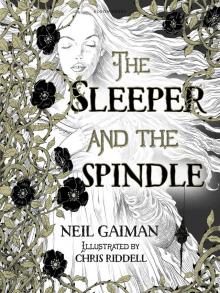 The Sleeper and the Spindle
The Sleeper and the Spindle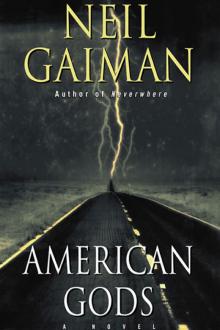 American Gods
American Gods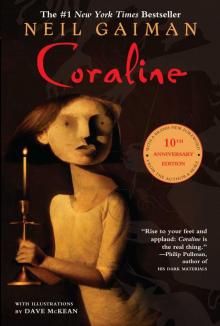 Coraline
Coraline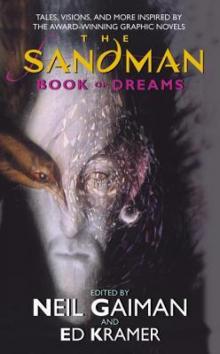 The Sandman: Book of Dreams
The Sandman: Book of Dreams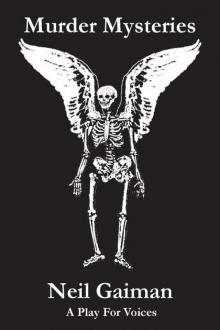 Murder Mysteries
Murder Mysteries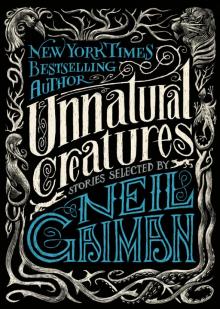 Unnatural Creatures
Unnatural Creatures Eternity's Wheel
Eternity's Wheel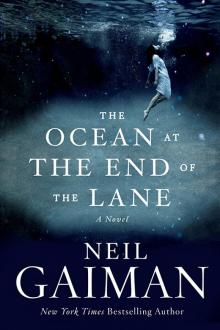 The Ocean at the End of the Lane
The Ocean at the End of the Lane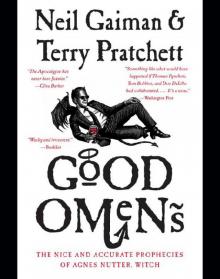 Good Omens
Good Omens Stardust
Stardust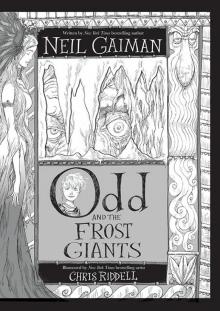 Odd and the Frost Giants
Odd and the Frost Giants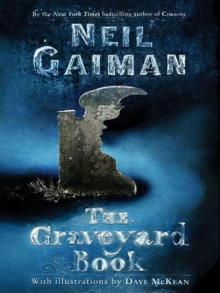 The Graveyard Book
The Graveyard Book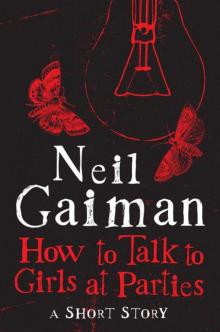 How to Talk to Girls at Parties
How to Talk to Girls at Parties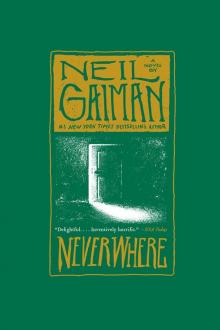 Neverwhere
Neverwhere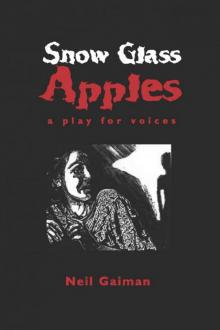 Snow, Glass, Apples
Snow, Glass, Apples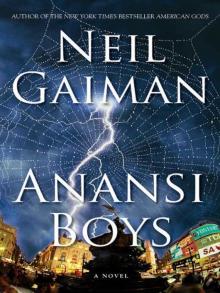 Anansi Boys
Anansi Boys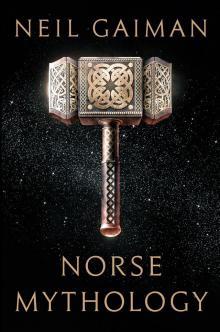 Norse Mythology
Norse Mythology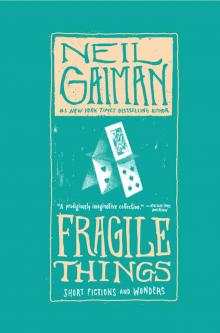 Fragile Things: Short Fictions and Wonders
Fragile Things: Short Fictions and Wonders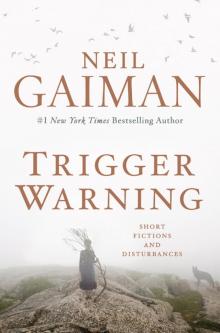 Trigger Warning: Short Fictions and Disturbances
Trigger Warning: Short Fictions and Disturbances InterWorld
InterWorld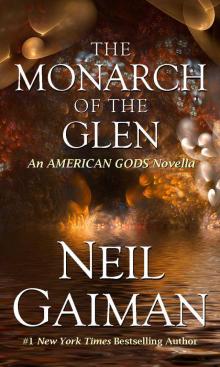 The Monarch of the Glen
The Monarch of the Glen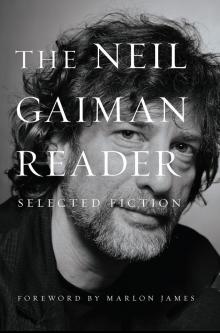 The Neil Gaiman Reader
The Neil Gaiman Reader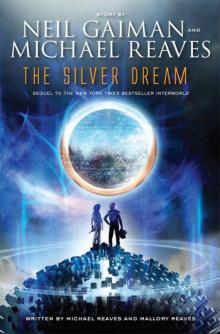 The Silver Dream
The Silver Dream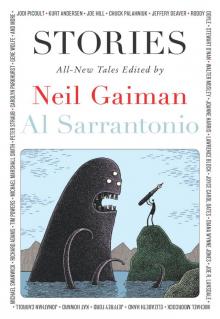 Stories
Stories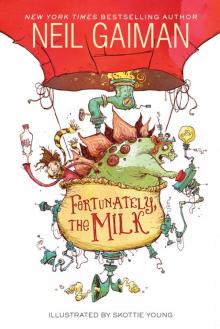 Fortunately, the Milk
Fortunately, the Milk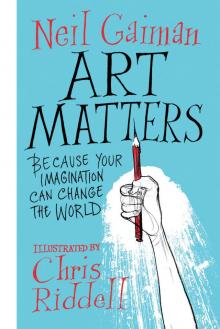 Art Matters
Art Matters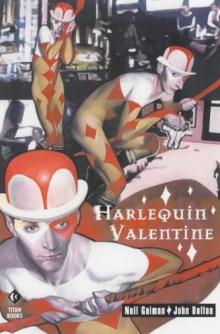 Harlequin Valentine
Harlequin Valentine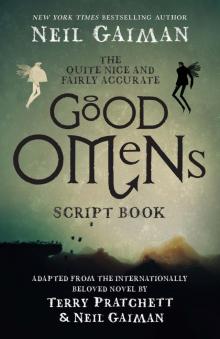 The Quite Nice and Fairly Accurate Good Omens Script Book
The Quite Nice and Fairly Accurate Good Omens Script Book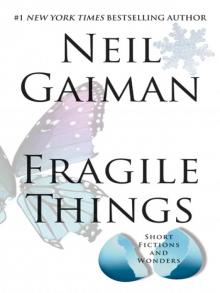 Fragile Things
Fragile Things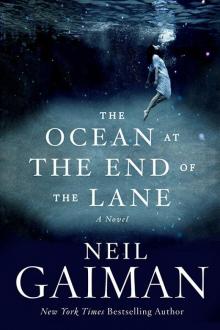 The Ocean at the End of the Lane: A Novel
The Ocean at the End of the Lane: A Novel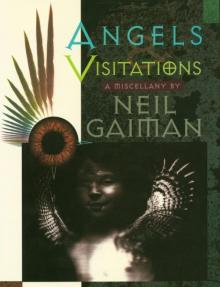 Angels and Visitations
Angels and Visitations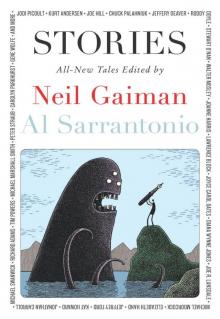 Stories: All-New Tales ngss-1
Stories: All-New Tales ngss-1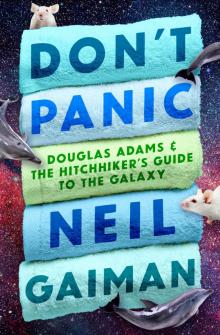 Don't Panic
Don't Panic Darker Terrors
Darker Terrors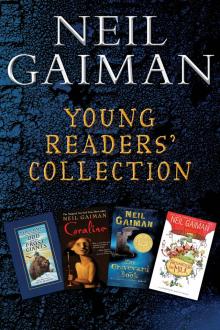 Neil Gaiman Young Readers' Collection
Neil Gaiman Young Readers' Collection A Study In Emerald
A Study In Emerald The Silver Dream: An InterWorld Novel
The Silver Dream: An InterWorld Novel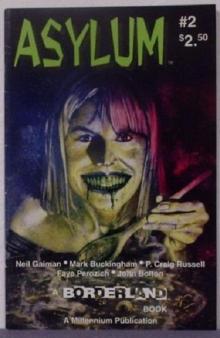 Feeders and Eaters
Feeders and Eaters Psychos
Psychos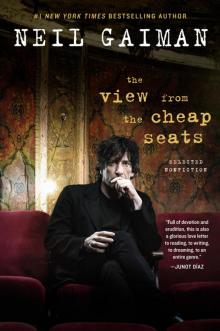 The View from the Cheap Seats
The View from the Cheap Seats Trigger Warning
Trigger Warning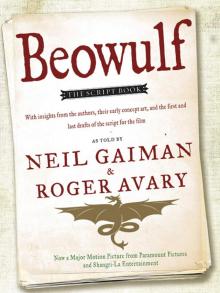 Beowulf
Beowulf Nessun Dove
Nessun Dove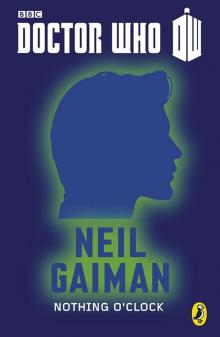 Doctor Who: Nothing O'Clock: Eleventh Doctor: 50th Anniversary
Doctor Who: Nothing O'Clock: Eleventh Doctor: 50th Anniversary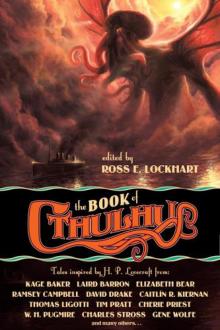 The Book of Cthulhu
The Book of Cthulhu